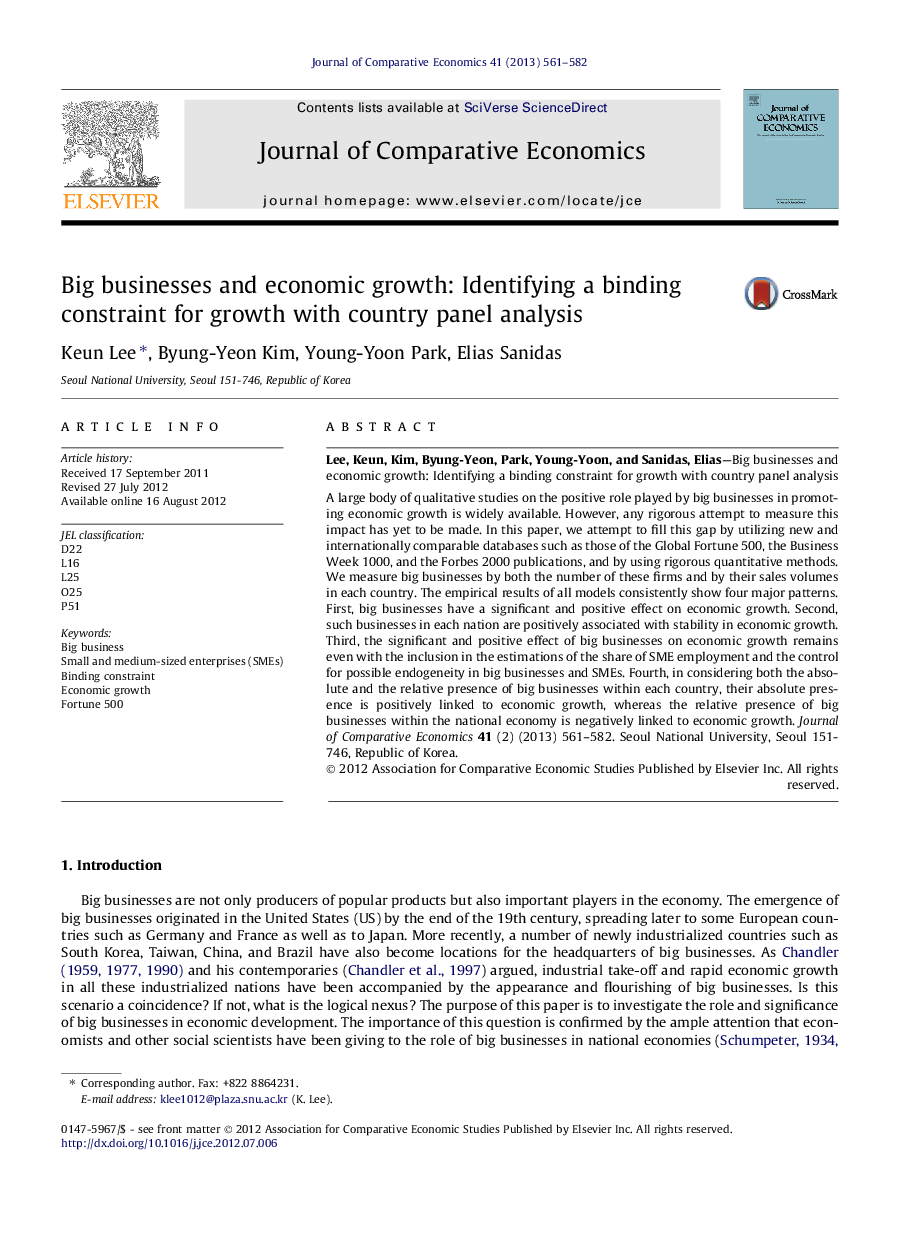| Article ID | Journal | Published Year | Pages | File Type |
|---|---|---|---|---|
| 5092222 | Journal of Comparative Economics | 2013 | 22 Pages |
A large body of qualitative studies on the positive role played by big businesses in promoting economic growth is widely available. However, any rigorous attempt to measure this impact has yet to be made. In this paper, we attempt to fill this gap by utilizing new and internationally comparable databases such as those of the Global Fortune 500, the Business Week 1000, and the Forbes 2000 publications, and by using rigorous quantitative methods. We measure big businesses by both the number of these firms and by their sales volumes in each country. The empirical results of all models consistently show four major patterns. First, big businesses have a significant and positive effect on economic growth. Second, such businesses in each nation are positively associated with stability in economic growth. Third, the significant and positive effect of big businesses on economic growth remains even with the inclusion in the estimations of the share of SME employment and the control for possible endogeneity in big businesses and SMEs. Fourth, in considering both the absolute and the relative presence of big businesses within each country, their absolute presence is positively linked to economic growth, whereas the relative presence of big businesses within the national economy is negatively linked to economic growth.
⺠Data of the Global Fortune 500, Business Week 1000, and Forbes 2000 companies; quantitative methods controlling endogeneity. ⺠Big businesses have a significant positive effect on economic growth. ⺠A negative impact of the relative presence of big business measured by the ratio of the sales to GDP. ⺠Big businesses are also positively associated with more stable economic growth.
